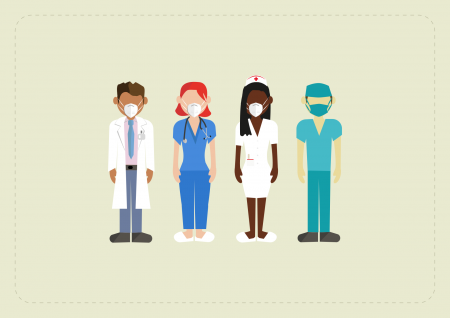
South Yorkshire and Bassetlaw Integrated Care System has published a report summarising the key findings from activity that has taken place across the system to hear patient and public voice during the current COVID-19 pandemic.
In total 18 pieces of work have been considered in the report, with an estimated patient public voice reach of approx. 7000. The work covers the South Yorkshire and Bassetlaw area and covers a wide range of COVID-19 related insight – some asking about people’s understanding of information, some about wellbeing, and some about more specific changes to services such as alternative appointment types. Despite this there are still common themes that have arisen.
The key themes from the feedback within the report are:
The impact of COVID-19 on people’s mental health
- Many people are reporting having low-level mental health concerns, such as anxiety and depression, caused by amongst other things, job insecurity, carers having no respite, and the impact of shielding
- Those with existing conditions such as cancer and long term conditions felt isolated and that they’d received less help/ support than prior to the pandemic
- Vulnerable communities also reported that the anxiety many of them already face due to their life circumstances has been increased
- The mental health impacts of social isolation was referenced in a number of reports, with vulnerable communities particularly susceptible
- The impact of bereavement, increased concerns about suicide and domestic abuse were all referenced
Access to services – alternatives to face to face (primary and secondary care)
- Many people have used alternative services, such as online ordering of prescriptions, telephone consultations, digital face to face consultations, and 111
- Many people are comfortable with alternatives, but many still expressed a preference for face to face, particularly for first appointments
- Many felt that alternative appointment methods would not adversely affect them
- Choice appears to be key with appointment methods. Some people feel telephone calls can be more complex and longer than face to face appointments, whilst others find them easier and more flexible. Some also reported the technology causing them stress
- Vulnerable communities, such as those for whom English isn’t their first language reported positivity around GP phone appointments having access to interpretation, but the automatic system at the beginning of a 111 call being a problem for this, and hospitals appointment letters not offering interpretation. The deaf community wanted emails and online booking systems to remain options. Lack of access to technology was also cited as a barrier for asylum seeker communities
- In general consensus from patients is that a range of appointment offers (face to face, telephone and digital) are needed as they all have different strengths and weaknesses and that people’s individual circumstances needed to be taken into consideration to ensure services met their needs
Access to services – delays in treatments
- A number of the reports highlighted people’s concerns about planned procedures and appointments being postponed or cancelled, and subsequently the length of waiting lists
- There were reports that patients were confused about services being closed at the height of the pandemic, and also that people did not attend their appointments for fear of catching the virus
- Cancer patients in particular had concerns about changes to their treatment plans, and feeling like their illness wasn’t important and that they didn’t want to bother the busy NHS
- Where patients were transferred for safety and to avoid delays, such as the Children’s pathway, feedback was largely positive
Lack of clarity of messages/ information – particularly in later stages of the pandemic and particularly for the most vulnerable communities
- Getting messaging right for people remains a challenge, with some people reporting too much information about COVID-19, and others feeling like they have unmet information needs
- Particular areas of confusion for the wider public were around masks and shielding
- Vulnerable communities report facing significant communication challenges, including a lack of translated materials, inability to read written material (even in their spoken tongue) and an over-reliance on digital information. Fake news, and higher trust of word of mouth within their community than official channels are also challenges
Helen Stevens-Jones, South Yorkshire and Bassetlaw Integrated Care System’s Associate Director for Communications and Engagement said: “At the start of the pandemic many of the health and care organisations in South Yorkshire and Bassetlaw rightly started thinking ‘we need to be hearing from the public about how they’re feeling and what they think to some of the changes that have had to be put in place’. We’ve now pulled much of that work that took place together into one report so that all partners can learn from what each other has heard and we can make sure additional engagement work that is taking place in South Yorkshire and Bassetlaw builds on what we already know, rather than duplicating.
“We are now working with partners to understand what they’re asking/ hearing from patients and the public in this second wave. When the pandemic is over we will then have a really strong understanding of how our patients/ public have been affected and where they’ve found changes that have had to be made to be positive or negative, to help us plan for the future.”
